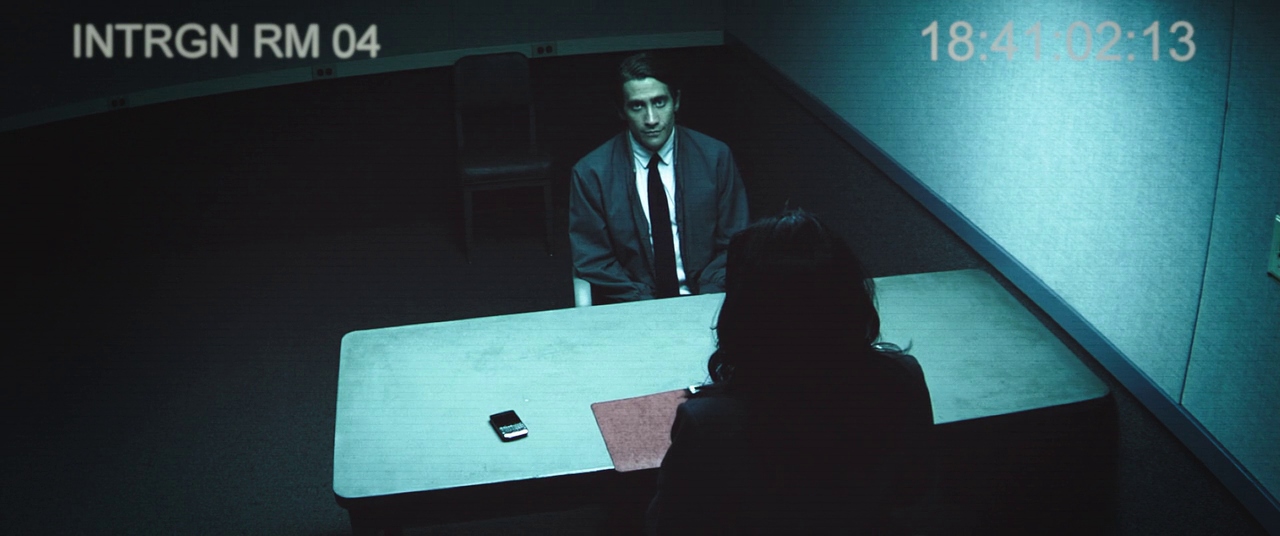If you were to see a screaming woman running down the street with her throat cut, what would your reaction be? I’m sure a lot of people would rush to help and bring her medical attention. A handful of people would probably run away in fear that whatever happened to this poor soul could happen to them. Some would stand on the sidelines watching: either too perplexed by what they are seeing or too stunned to act. If you’re Lou Bloom… you decide to start filming.
Nightcrawler (2014) portrays the rise of Lou Bloom, a self-taught businessman and conman who stumbles his way into the business of recording crime in Los Angeles and selling the footage to a local TV news station. Unlike Forrest Gump, however, who is known for letting himself fall into fate’s hands and going with the flow, Lou achieves success by taking advantage of what’s around him. So when Lou pulls over on the freeway to investigate the aftermath of a car crash and notices a camera crew filming the action, he immediately sees an opportunity to exploit and profit from.
Lou has all the traits of a good businessman: he’s hardworking, he seems to know his way around a negotiation, and he is able to create a well-organized business plan. The problem is that Lou also has all the traits of a sleazy conman: he looks like he hasn’t slept in weeks, he’s manipulative and always looking for an edge, and he fundamentally lacks empathy in any shape or form. He is calculating and meticulous, which keeps him out of the hands of the law: Lou avoids arrest several times because of his methodically presented alibis.
There’s a peculiar and mechanical nature to the way Lou operates. He treats his less-than-ordinary job as an everyday office job, often using vernacular such as, “I won’t let you down,” “I’m a very quick learner,” and “You’ll hear from me again,” to his boss, Nina. The strangest part about all of this is that Lou hasn’t worked in an office in the past. He admits to learning most things online and not through college or field experience. So, we root for Lou in the beginning because we still have empathy for him. It is easy to perceive him as a loner who has social problems but is also a hard worker, and anyone can empathize with a hard worker and understand that Lou’s social awkwardness might not be in his control. The first line in the film is Lou saying, “I’m lost.” Everyone who’s been lost can feel for Lou in this moment.
It’s not until later in the film that we realize how maniacal Lou’s actions are. Lou stealing a person’s watch in the opening scenes of the film is definitely wrong, but it’s written off as more impish than calculated. As the story moves forth, we realize he stole the watch not because he liked it, but because it looked like something a future employer might notice and associate with success.
The real bombshell is what Lou says to his partner, played by Riz Ahmed, who drives him around Los Angeles looking for accidents and violent crimes to tape. Lou wonders in the film’s last half hour, “What if my problem wasn’t that I don’t understand people, but that I don’t like them?” This moment is a breakthrough. This reality is what makes Nightcrawler’s audience recoil in their seats. Someone committing horrible acts for money is bad enough, but when someone commits these same acts because they have a disregard for human life, then it moves into the territory of wickedness. Lou records violence for both reasons, making him one of the more evil protagonists I have seen in a while.
As much as I despise Lou, I realize that his actions are a reflection of his environment, which reflects a bigger and altogether more sinister problem. Lou’s boss, Nina, is in awe of Lou’s footage, even calling it “beautiful.” Nina sees only the profit in what Lou brings her. She’s not calling the footage beautiful, she’s calling the profit beautiful. Prioritizing profit in the broadcast journalism business, of course, is dangerous—it often leads to reporting on what people want to hear, rather than what is factual.
Nina describes what Lou should film for her near the opening of the film. What she describes feels almost scripted and rehearsed—she says, “Think of our newscast as a screaming woman running down the street with her throat cut.” Sounds familiar, right? Nina understands that attention and fear equal views, and views lead to profit. If it bleeds… it leads.
News to Nina is something that defies societal standards. She mentions that a carjacking in Compton is not news, while a crime committed in the suburbs is. It’s textbook sensationalism and the way Nightcrawler handles the topic reveals the state of mind of our society. What people want to see on the news reflects the inner biases in all of us. In many ways, the broadcast media is simply giving its audience what it wants.
Recently, the world has witnessed the danger of sensationalism. Along with false reporting, it’s one of the most morally troubling and exploitative things that a media company can take part in. Nightcrawler serves as a mirror, reflecting the brutality, racism, xenophobia, and other evil biases that continue to plague society. These issues might not come out on the surface in broad daylight, but Nightcrawler lets you know that they are out there somewhere, crawling in the night.


